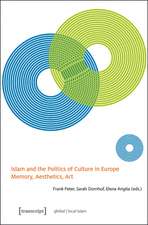The Philosophy of Illumination: Brigham Young University - Islamic Translation Series
Autor Shihab al-Din Suhrawardi Traducere de John Walbridge, Hossein Ziaien Limba Engleză Hardback – mai 2000
Shihäb al-Din al-Suhrawardi was born around 1154, probably in northwestern Iran. Spurred by a dream in which Aristotle appeared to him, he rejected the Avicennan Peripatetic philosophy of his youth and undertook the task of reviving the philosophical tradition of the "Ancients."
Suhruwardi's philosophy grants an epistemological role to immediate and atemporal intuition. It is explicitly anti-Peripatetic and is identified with the pre-Aristotelian sages, particularly Plato. The subject of his hikmat al-Ishraq—now available for the first time in English—is the "science of lights," a science that Suhrawardi first learned through mystical exercises reinforced later by logical proofs and confirmed by what he saw as the parallel experiences of the Ancients. It was completed on 15 September 1186; and at sunset that evening, in the western sky, the sun, the moon, and the five visible planets came together in a magnificent conjunction in the constellation of Libra. The stars soon turned against Suhrawardi, however, who was reluctantly put to death by the son of Saladin, the sultan of Egypt, in 1191.
Suhruwardi's philosophy grants an epistemological role to immediate and atemporal intuition. It is explicitly anti-Peripatetic and is identified with the pre-Aristotelian sages, particularly Plato. The subject of his hikmat al-Ishraq—now available for the first time in English—is the "science of lights," a science that Suhrawardi first learned through mystical exercises reinforced later by logical proofs and confirmed by what he saw as the parallel experiences of the Ancients. It was completed on 15 September 1186; and at sunset that evening, in the western sky, the sun, the moon, and the five visible planets came together in a magnificent conjunction in the constellation of Libra. The stars soon turned against Suhrawardi, however, who was reluctantly put to death by the son of Saladin, the sultan of Egypt, in 1191.
Preț: 296.55 lei
Nou
Puncte Express: 445
Preț estimativ în valută:
56.75€ • 59.03$ • 46.85£
56.75€ • 59.03$ • 46.85£
Carte disponibilă
Livrare economică 24 martie-07 aprilie
Livrare express 08-14 martie pentru 46.79 lei
Preluare comenzi: 021 569.72.76
Specificații
ISBN-13: 9780842524575
ISBN-10: 0842524576
Pagini: 323
Ilustrații: xlvii+, 323 p.
Dimensiuni: 152 x 229 x 36 mm
Greutate: 0.82 kg
Ediția:1
Editura: Brigham Young University
Colecția Brigham Young University
Seria Brigham Young University - Islamic Translation Series
ISBN-10: 0842524576
Pagini: 323
Ilustrații: xlvii+, 323 p.
Dimensiuni: 152 x 229 x 36 mm
Greutate: 0.82 kg
Ediția:1
Editura: Brigham Young University
Colecția Brigham Young University
Seria Brigham Young University - Islamic Translation Series
Cuprins
Foreword to the Series
Acknowledgements
Translators’ Introduction
Shahrazuri’s Introduction
Suhrawardi’s Introduction
Part One: The Rules of Thought, in Three Discourses
The First Discourse: Knowledge and definition [comprising seven rules]
The Second Discourse: On proofs and their principles, comprising [seven] rules
The Third Discourse: On sophistical refutations and some judgments between the Illuminationists and the Peripatetic doctrine in [several] sections
Part Two: On the Divine Lights, the Light of Lights, and the Bases and Order of Existence, in Five Discourses
The First Discourse: On light and its reality, the Light of Lights, and that which first was generated from It, in nine sections and rules
The Second Discourse: On the order of existence, in [fourteen] sections
The Third Discourse: Explaining the activity of the Light of Lights and the dominating lights and the rest of the discussion of the celestial movements, in four sections
The Fourth Discourse: On the classification of barriers, their states, their combinations, and some of their powers, in [eight] sections
The Fifth Discourse: On the resurrection, prophecy, and dreams, in [nine] sections
Notes to the English Text
Notes to the Arabic Text
Glossary
Bibliography
Index
Acknowledgements
Translators’ Introduction
Shahrazuri’s Introduction
Suhrawardi’s Introduction
Part One: The Rules of Thought, in Three Discourses
The First Discourse: Knowledge and definition [comprising seven rules]
The Second Discourse: On proofs and their principles, comprising [seven] rules
The Third Discourse: On sophistical refutations and some judgments between the Illuminationists and the Peripatetic doctrine in [several] sections
Part Two: On the Divine Lights, the Light of Lights, and the Bases and Order of Existence, in Five Discourses
The First Discourse: On light and its reality, the Light of Lights, and that which first was generated from It, in nine sections and rules
The Second Discourse: On the order of existence, in [fourteen] sections
The Third Discourse: Explaining the activity of the Light of Lights and the dominating lights and the rest of the discussion of the celestial movements, in four sections
The Fourth Discourse: On the classification of barriers, their states, their combinations, and some of their powers, in [eight] sections
The Fifth Discourse: On the resurrection, prophecy, and dreams, in [nine] sections
Notes to the English Text
Notes to the Arabic Text
Glossary
Bibliography
Index

















